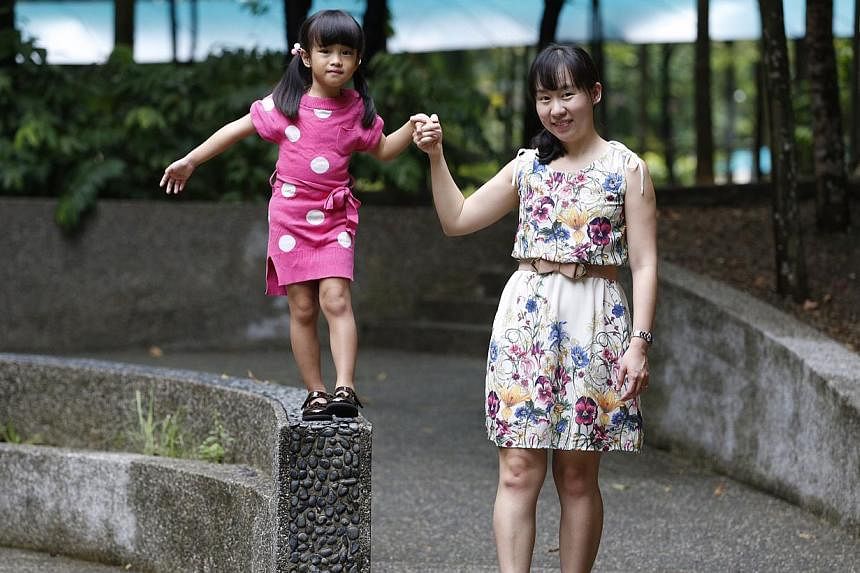When relationship manager Serene Lee gets off work at 5.30pm, it is a mad rush to meet her husband, buy dinner and pick their daughter up from childcare.
By the time dinner is over and the family has settled down, she has only about an hour to spend with four-year-old Chloe.
"It would be nice if the work day ended a little earlier, because the extra half hour or one hour can make a lot of difference at home," said Ms Lee, 34, whose husband is a civil servant. "We could pick our daughter (up) earlier, and the pace would be less stressful. In the evening, we could spend more time with her."
While working parents with young children like Ms Lee deem flexible hours or staggered start and end times beneficial, few of them enjoy this perk, a survey found earlier this year.
The survey commissioned by The Straits Times and work-life advocacy group Employer Alliance (EA) found that although staggered start and end times were the top-ranked benefit among working mums with young children, less than a quarter used the scheme. Also, less than a quarter of mums and a fifth of dads used flexi-hours, though they ranked it third-most beneficial.
This could be because many feel a need for facetime.
The survey of 1,000 employees and 500 employers by Degree Census Consultancy showed that more than eight in 10 working mums with young children think they are expected to be in the office during working hours. Likewise, for seven in 10 of their male peers. "Our clients work during office hours so we need to be there to liaise between them and the internal team," said Ms Lee, who works in a publishing company.
Working parents with young children worried more than the average employee about using work-life programmes - while 25 per cent of all employees were concerned, 34 per cent of mums and 27 per cent of dads were concerned. Mums worried about financial losses or negative comments from colleagues and supervisors, while dads feared getting unfavourable work assignments.
"It's a tough decision because working fewer hours might mean less income, and there are a lot of expensive things to consider when raising a child," said assistant communications manager Angeline Ng, 30, who has a three-year-old daughter.
Some young parents are also tied to the workplace as they may have daily meetings or a lot of overseas travel, for example.
Mr Yeoh Cheng Huann, 33, quit his previous job four years ago when he and his wife, a teacher, were planning to have children. "I needed to travel for periods of time and thought if I had a child I would like to be at home more." As a senior financial consultant now, he can arrange meetings around events like medical appointments for his two-year-old daughter and six-month-old son.
Worries about being unable to track productivity or contact employees on flexi-work arrangements may discourage some employers from implementing such practices. Around half of the companies surveyed offered staggered work times or flexi-hours.
But EA chairman Claire Chiang said: "You have to see this as a marketplace imperative and an investment for a longer-term war for talent." For a start, companies can make plans, talk to the person requesting flexi-work arrangements, decide about pay, and then evaluate performance after six months, she added.
Businesses can gain too, said human resource expert Paul Heng, adding: "It could help retention and employees may be able to focus more on work during office hours with the peace of mind that their priorities are balanced."
Founder and chief executive of corporate services company Heritage Trust, Dr Angelo Venardos, said he saw this after one worker started a three-quarter work day arrangement six years ago to spend more time with her children. "She found she could work more effectively and her team is one of the best because of her."
The company formalised its flexi-work arrangements this year, to ensure that staff know they can apply for them but do not take the schemes for granted.
Dr Venardos added: "If we make you happy during the day, hopefully you go home happy and come back happy the next day."


